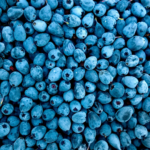Although chronic coughing might be irritating, coughs help the body get rid of allergens and viruses. The underlying reason of your cough will determine the best course of action.
Just a few of the underlying causes of a cough include allergies, infections, and acid reflux.
This article discusses some all-natural cough treatments.
A cough may be relieved by certain natural treatments.
Although the Food and Drug Administration (FDA)Trusted Source does not regulate herbs and supplements, it is nevertheless vital to keep in mind that those who use them run the danger of ingesting subpar products and chemicals.
People who want to treat their cough with natural medicines should look into brands and suppliers. They should be aware that some herbs and supplements may interact negatively with some drugs, leading to undesirable side effects.
Always get medical advice before taking supplements.
In addition, a person has to see a doctor if:
- The cough is persistent or lasts for a long period.
- They experience breathlessness
- There is blood or yellowish-green mucous.
- Additionally, they get a fever or headache.
- A wheezing or whooping sound is produced by the cough.
12 Natural Cough Treatments
A variety of natural treatments are used by people to try to alleviate a chronic cough.
It’s crucial to keep in mind that some of the following therapies have just little evidence to support their usage, even though they might be helpful for some people.
This indicates that a person may or may not find the therapies to be effective for them.
Honey
According to studies, honey may help with coughing.
Researchers examined the impact of using honey to treat coughs in upper respiratory infections in a review of papers published in 2021.
The researchers discovered that honey was more effective than standard treatment at suppressing the cough and reducing the need for antibiotics.
In another 2021 study, scientists compared the cough suppressant dextromethorphan to honey.
The scientists discovered that dextromethorphan and honey both effectively reduced coughing. In one trial, honey performed somewhat better than dextromethorphan, while in another, it performed similarly.
This remedy can be used by swallowing a teaspoon of honey or mixing it with a hot beverage, like herbal tea.
Ginger
Since ginger has anti-inflammatory effects, it may help with a dry or asthmatic cough. Additionally, it could ease pain and nausea.
The impact of ginger on coughs has only been examined in a few older research. In a 2015 study, ginger was one of 10 natural ingredients that were employed in traditional Asian remedies.
Researchers discovered that honey and other cures, including ginger, have long been used in traditional medicines.
The researchers stated that this study may serve as a starting point for future researchers looking into natural cough remedies, even though a long history of use can have significant implications.
Ginger is frequently used in cooking and tea. They should be warned that ginger tea occasionally can cause upset stomach or heartburn.
Marshmallow root (Althaea)
The plant marshmallow root has a long history of use as a cough and sore throat remedy.
Due to the herb’s high mucilage content, coughing-related irritation can be relieved. The mucilage that coats the throat is a thick, glue-like substance.
An herbal cough syrup comprising marshmallow root, thyme, and ivy was found to be an effective treatment for coughs brought on by respiratory tract infections and common colds in an older, small trial.
90% of the subjects gave the syrup’s effectiveness a good or very good rating after 12 days of use.
According to researchers from a 2020 study, marshmallow root extract has a coating effect.
The root extract, which has similar anti-inflammatory and antioxidant effects to the nonsteroidal anti-inflammatory drug diclofenac, was discovered to be effective. In vitro testing was used in the study.
Additionally, dried herbs and tea bags in the form of marshmallow root are offered. Either drink it right away after adding hot water, or wait until it cools down first. More mucilage will be present in the beverage the longer the marshmallow root steeps in the water.
Stomach distress is one of the potential side effects, but this may be managed by consuming more fluids.
You may buy marshmallow root online or at health food stores.
Bromelain
Pineapples contain an enzyme called bromelain. The fruit’s core has the greatest concentration of it.
Mucus may be broken down and expelled from the body thanks to its mucolytic and anti-inflammatory effects.
Some people regularly use pineapple juice to thin throat mucous and stop coughing. The juice might not contain enough bromelain, though, to alleviate symptoms.
It is possible to get supplements containing bromelain, which may work better for suppressing coughs. However, it is important to see a physician before attempting any new supplements.
Bromelain has the potential to cause allergies, and it may also have negative side effects and interact with drugs. People who use particular antibiotics or blood thinners should not consume bromelain.
Thyme
Thyme is used both in cooking and medicine, and is frequently used as a treatment for digestive problems, bronchitis, sore throats, and coughs.
Researchers stated that there is substantial evidence that utilizing thyme preparations helped people’s cough symptoms in a 2015 meta-analysis of multiple studies.
They did point out that more research is required to show its overall efficacy.
People who used a mix of thyme and ivy drops demonstrated improvement in their bronchitis symptoms, cough, and general quality of life, according to a more recent study in 2021.
They also mentioned that there weren’t many side effects associated with utilizing the drops.
A person can search for a cough syrup that contains thyme to cure coughs with this herb.
Hot liquids
Although there is a dearth of recent research, an older study from 2008 suggested that consuming drinks at room temperature may help to reduce coughing, runny noses, and sneezing.
However, warming up your beverages may be advantageous for those who are experiencing additional cold or flu symptoms. According to the same study, hot beverages help to relieve additional symptoms such a sore throat, chills, and exhaustion.
After completing the hot beverage, the symptoms continued to be relieved for a while.
The following hot drinks can be comforting:
- broths
- natural teas
- black tea
- hot water
Steam
Steam may help a wet cough, which is one that produces mucus or phlegm.
Take a hot shower or bath and let the steam fill the room before attempting this technique. Until the symptoms go away, they should spend a few minutes in this steam. After then, they can sip on a glass of water to cool up and avoid being dehydrated.
An alternative is to create a steam bowl. To accomplish this, one should:
Have a large basin filled with hot water.
Add herbs or essential oils, like rosemary or eucalyptus. These could ease congestion.
Put a cloth over your head and lean over the bowl. The steam is contained in this way, allowing for inhalation.
For a period of 10 to 15 minutes, continue inhaling the steam.
If done once or twice a day, steaming may be beneficial to a person.
Despite widespread belief, not all research supports the use of steam to treat cough and other symptoms. For instance, a 2017 study on the usage of steam for the symptoms of a common cold discovered that the symptoms were not significantly improved.
Gargle with sea salt
For a very long time, people have used saltwater gargles to help relieve sore throats and cold-related symptoms. Mucus may be loosened, and some pain may be reduced.
It probably won’t, however, aid in lowering viral load.
To assist stop the development of COVID-19, researchers evaluated various antiseptic mouthwashes in a 2021 study. They discovered that while a lab-made saltwater solution could not completely eradicate the virus, a number of commercial brands assisted in decreasing viral load.
Making a saltwater gargle involves:
In a cup of warm water, stir 1/2 teaspoon of salt until it dissolves.
Before using the mixture to gargle, give it a little time to cool.
Before spitting up the combination, allow it to settle at the back of the throat for a few seconds.
Repeat this several times daily until your cough becomes better.
Gargling with saltwater should be avoided by young children and persons with high blood pressure.
Changing your diet to treat acid reflux
The most typical reason of a cough is acid reflux. One of the greatest methods to treat this problem and lessen the cough it causes is to avoid meals that can cause acid reflux.
Different reflux triggers may differ from person to person and should be avoided. Uncertain reflux sufferers can start by cutting out the most prevalent triggers from their diet and keeping an eye on their symptoms.
The following are the foods and drinks that most frequently cause acid reflux:
- alcohol
- caffeine
- onions and garlic
- mint
- spicy foods and spices
- tomatoes and items made with tomatoes
- citrus foods
- fatty and fried foods
Tips for avoiding a cold

The following advice helps lessen the chance of contracting a cold or other respiratory tract infections, which can cause a cough.
Using a disinfectant: When a family member is sick, one should regularly disinfect the kitchen and bathroom and wash bedding, towels, and soft toys in hot water.
Maintaining hydration: To assist prevent dehydration, one should be sure to consume enough water, herbal teas, and other liquids.
Lowering stress: Stress weakens the immune system and raises the likelihood of contracting an illness. Regular exercise, meditation, deep breathing, and progressive muscle relaxation are all effective ways to reduce stress.
Getting enough rest: As part of a regular self-care regimen, an individual should attempt to get between 7-9 hours of sleep each night.
Avoiding contact with sick people: A person should keep a safe distance from those who are coughing, sneezing, or have the flu.
Washing hands frequently: To get bacteria and viruses off the skin, one should wash their hands with soap and warm water. Children can learn how to properly wash their hands from their parents and other adults. When required, a person can use an alcohol-based hand sanitizer outside the house.
Taking immune-boosting supplements: To strengthen their immune system during the cold and flu season, a person may want to think about taking zinc, vitamin C, and probiotics. A person should consult a doctor before beginning any new supplements.
Sometimes, allergy symptoms resemble cold symptoms. By avoiding allergy irritants including pollen, dust mites, animal dander, and mold, a person can lessen allergy flare-ups. A person should visit a doctor for allergy injections or drugs as well.
Ways to prevent coughing
Someone suffering from a cold or another respiratory ailment might desire more quick relief. While some of the aforementioned treatments, like honey or steam, may provide relief more rapidly, others do not.
A person may find the following additional measures beneficial for lessening their cough:
- ingesting warm liquids like tea or broth
- abstaining from dairy products
- eschewing alcohol
- taking in humid air from a humidifier or the steam after a shower
Additionally, over-the-counter drugs like dextromethorphan-containing ones or cough drops may provide some comfort. These can aid in cough repression.
When to visit a doctor
If any of the following signs are present along with a cough, a person should consult a doctor:
- 102 or higher fever
- More than a three-day fever
- weakness
- sour-smelling phlegm that is green or yellow
- chills
- dehydration
If a cough produces blood or creates breathing problems, people should dial 911 or go to the closest emergency room.
Conclusion
A person’s cough may be somewhat relieved by a number of natural treatments, either directly or indirectly.
While many have at least some scientific support, they might not be effective for all people. Natural therapies also do not guarantee everyone’s safety.
Before using any new supplements or home cures, anyone who are taking drugs or who have particular health conditions should consult their physician.










